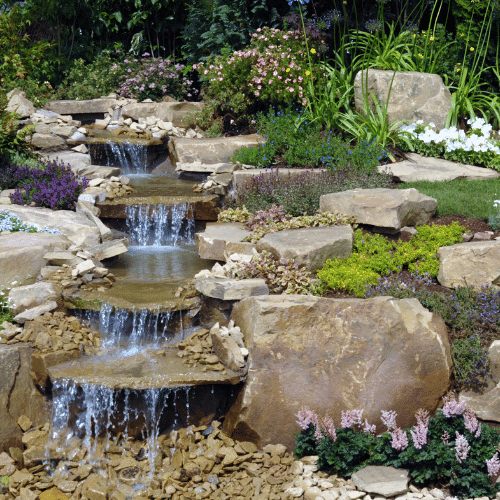
01 Nov Control Pests Near Water Features
Water Features and Pest Control Tips
Water features like fountains, ponds, and birdbaths can add beauty and serenity to any landscape. However, these same elements can also attract unwanted pests, turning your peaceful oasis into a breeding ground for insects, rodents, and other critters. The warm, humid climate of South Florida makes these water features even more appealing to pests, which can lead to infestations if left unchecked.
Understanding what attracts pests to water sources and learning how to manage these attractions can help homeowners and business owners maintain pest-free outdoor spaces. While water features offer an inviting environment for people, they also create favorable conditions for various pests to thrive. In this article, we’ll dive into the reasons pests flock to water features and provide practical tips on keeping them out.
Pests Love Water Sources
Water is essential for all living organisms, and pests are no exception. In South Florida’s hot climate, pests are constantly searching for water to stay hydrated and survive. During dry seasons or droughts, outdoor water features become even more attractive to pests, offering them a reliable hydration source. Mosquitoes, in particular, rely on standing water for breeding, laying their eggs in shallow, stagnant pools like those found in birdbaths or neglected fountains.
Animals such as rodents also need water to survive. Rats and mice often establish nests near accessible water sources, and if your water feature is located near vegetation or clutter, these pests may settle there. The availability of water in your yard acts like a beacon, attracting a variety of pests, from insects to mammals.
Many pests are drawn to the shelter provided by water features. Shrubs, decorative plants, and stones around ponds create ideal hiding spots for insects and small animals. Rocks, overgrown vegetation, and debris can serve as nesting sites for pests, making it easy for them to remain undetected. This combination of water and shelter allows pests to breed and multiply rapidly, especially during South Florida’s long summer months.
Mosquitoes, in particular, find water features irresistible. Any still or stagnant water is enough for them to lay eggs and reproduce. Meanwhile, snails, frogs, and even rodents thrive in damp environments created by water features and their surrounding landscapes. Without proper maintenance, these pests can quickly establish colonies, leading to bigger infestations.
Stop Pests in Water Areas
Mosquitoes are one of the most common pests attracted to water. South Florida’s warm climate allows them to breed throughout the year, and even a small amount of standing water can be enough to support their life cycle. Female mosquitoes lay eggs on the surface of still water, making birdbaths, ponds, and clogged fountains prime locations.
Rodents seek out water sources to hydrate, especially during dry periods. Water features attract them, particularly if they are near dense shrubs or other vegetation that offers cover. Rats and mice use these hiding spots to build nests, and their presence can lead to further pest issues.
Snails and slugs love moist environments and are often found near water features. They feed on algae, decaying plant material, and garden plants, causing damage to nearby landscaping. These slimy pests thrive in areas with consistent moisture and shelter.
Frogs and toads are often drawn to water features because they attract insects like mosquitoes. Although frogs and toads can help control insect populations, they can also become a nuisance, especially if they gather in large numbers. Their loud calls at night can disrupt peaceful evenings in your yard.
Water features provide a hydration source for bees and wasps. They collect water to cool their hives during hot days, which makes your water feature an attractive pit stop. While these pollinators are beneficial to the environment, their presence near outdoor spaces can become problematic, especially if family members or guests are allergic to stings.
Natural Ways to Control Water Pests
To prevent mosquitoes from breeding, it’s essential to eliminate standing water. Ensure that fountains and ponds are properly aerated to keep the water moving. Using a fountain pump or aeration system prevents stagnation, making it less attractive for mosquitoes. Birdbaths should be cleaned and refilled regularly to disrupt mosquito breeding cycles.
Keeping water features clean is crucial for pest prevention. Remove algae, decaying leaves, and plant debris to eliminate food sources for snails and flies. Prune overgrown plants around the water feature to reduce hiding places for rodents and insects. Regular maintenance ensures your water feature stays beautiful and pest-free.
An organic approach to pest control can help protect your yard without harming beneficial wildlife. Natural treatments, such as neem oil or mosquito dunks made from bacteria, are safe options to keep insects at bay. For mosquito control, introduce mosquito fish to ponds—they consume mosquito larvae and help control the population naturally.
Rodents and other animals can be deterred by installing barriers or nets around water features. Fine mesh nets over ponds prevent mosquitoes from accessing the water, while barriers can block rodents from reaching water sources. Introducing natural predators like frogs and mosquito fish helps maintain a healthy ecosystem while controlling pest populations. A balanced ecosystem can also reduce the need for chemical interventions.
Safe Solutions for Water Pests
Despite your best efforts, pests may continue to be a problem around water features. Persistent infestations often require professional intervention to ensure long-term solutions. Rodent sightings near water sources indicate that it’s time to bring in a pest control expert. Rodents can cause structural damage, and their presence may attract even more pests.
Mosquito control is another area where professional help makes a significant difference. Year-round mosquito treatments ensure consistent protection, especially in South Florida’s climate. With professional pest control, you can enjoy your water feature without worrying about mosquito bites or the spread of mosquito-borne diseases.
Pest Busterzz is a family-owned, organic pest control company dedicated to keeping South Florida homes and businesses pest-free. We understand the unique challenges that water features present in our climate, and we offer customized solutions to meet your needs. Our team of experts specializes in eco-friendly pest control methods that are safe for children, pets, and the environment.
With service areas covering Miami-Dade, Broward, and Palm Beach counties, Pest Busterzz is your local partner in pest control. We provide effective solutions to keep mosquitoes, rodents, and other pests away from your water features, ensuring that your outdoor spaces remain enjoyable year-round. When it comes to pest management, you can trust Pest Busterzz to handle the job with care and expertise.
Conclusion
Water features can bring charm and tranquility to your yard, but they also attract a variety of pests. From mosquitoes to rodents, many pests are drawn to the water, shelter, and food sources that these features provide. Without proper care and maintenance, infestations can quickly develop, turning your peaceful retreat into a pest haven.
By implementing simple preventive measures, such as eliminating standing water and using organic pest control, you can maintain your water features without inviting pests. Regular maintenance is key to reducing infestations, and professional pest control services offer long-term solutions for more persistent problems.
At Pest Busterzz, we are committed to helping South Florida residents enjoy their water features without the nuisance of pests. Our eco-friendly, family-owned approach ensures that your spaces remain safe, healthy, and pest-free. Whether you need mosquito treatments, rodent control, or general pest management, Pest Busterzz has you covered. Contact us today to keep your water features beautiful and bug-free!


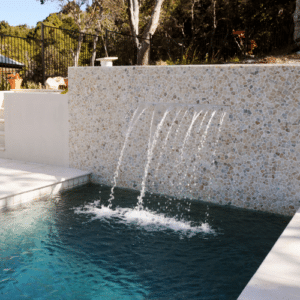
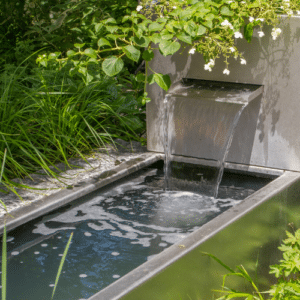
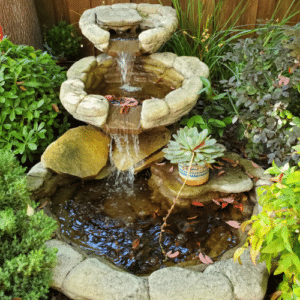
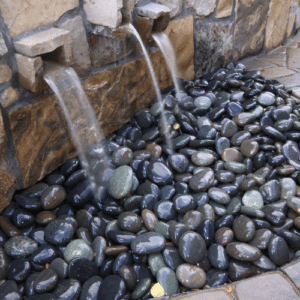
No Comments